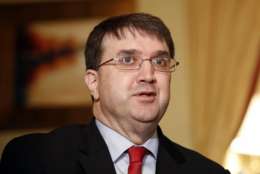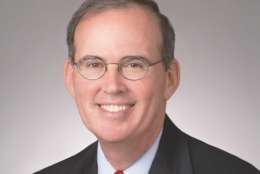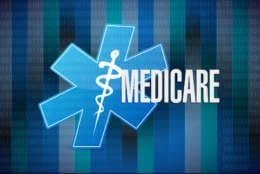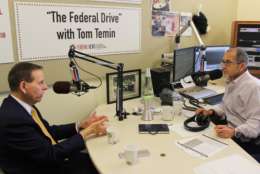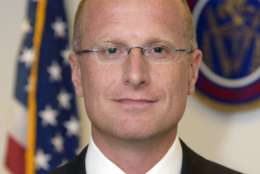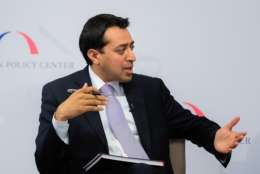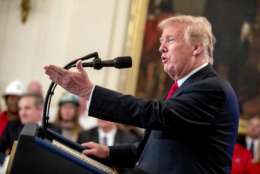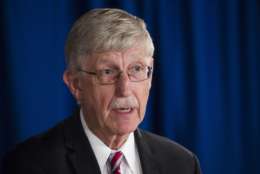Hubbard Radio Washington DC, LLC. All rights reserved. This website is not intended for users located within the European Economic Area.
health care
-
In today's Federal Newscast, the departments of Defense and Veterans Affairs signed an official joint statement, containing provisions to hold both agencies accountable during the project.
October 11, 2018 -
Health insurance experts say that in four or five years there would be little or no difference in the family and self-plus one plans.
October 02, 2018 -
The Coalition for Government Procurement’s Medical/Surgical Subcommittee recognized VA's Medical/Surgical Prime Vector program for ensuring the delivery of best value health care solutions to veterans.
September 14, 2018 -
Veterans eligible for monthly caregivers sometimes have a hard time accessing the program, according to the VA inspector general Michael Missal,
September 10, 2018 -
Somewhere along the line, annual spending for Medicare and Medicaid hit the $1 trillion mark. More than half is Medicaid.
September 06, 2018 -
The practice, mission and technology of nursing have changed a great deal over the last couple of decades, partly because of the National Institute of Nursing Research.
August 31, 2018 -
Marshalyn Yeargin-Allsopp has been called by colleagues a pioneer in identifying the scope of children's developmental disabilities including autism.
August 31, 2018 -
Health care delivery issues often get the most attention at the Veterans Affairs Department. But the Veterans Benefits Administration actually spends more dollars than the health side.
August 23, 2018 -
FCC Commissioner Brendan Carr said the pilot program would stand up for about two to three years with a handful of participants needing rural broadband.
August 23, 2018 -
The VA bought a generic medicine from a company selling New Jersey-made tablets containing an active ingredient from India.
August 16, 2018 -
Blockchain, one of the latest trends in federal IT, finds yet another potential use case in government — keeping track of electronic health record (EHR) data.
August 09, 2018 -
Dr. Anand Parekh, the center's chief medical adviser at the Bipartisan Policy Center and a former HHS employee shared the center's recommendations for closing the gap between HHS and HUD.
July 31, 2018 -
In today's Federal Newscast, the president has named Tamara Bonzanto to take over as the new assistant secretary for the Office of Accountability and Whistleblower Protection at the Veterans Affairs Department.
July 23, 2018 -
The opioid overuse crisis has drawn several federal agencies into the battle to mitigate it so Congress gave the National Institutes of Health $500 million this year.
July 20, 2018

